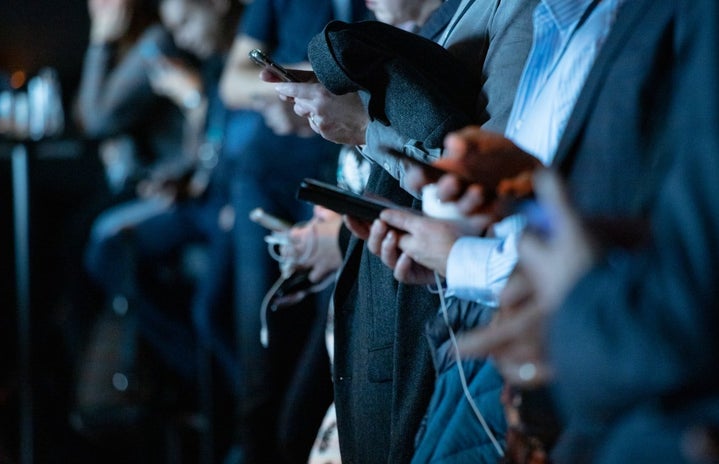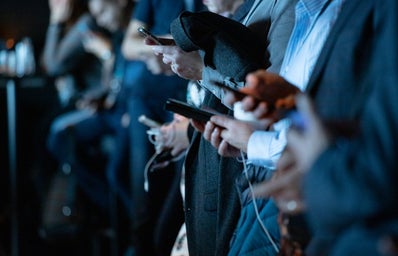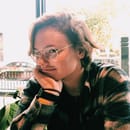I learned about this strange world for the first time as the smoke cleared from ground zero, just blocks from my first home, bodies still trapped under ash. In kindergarten we sat in silence at 9:03am, after a voice on the intercom told us to reflect. How do you reflect on national tragedy at five? We tried our best to understand. My friend was excused to the hallway. Her father hadn’t made it. I hope she is feeling okay these days.
We were never strangers to death. My mother took my brother and I to hospice to visit my grandfather as he took his last morphine drenched breaths. I thought mostly about Shark Boy and Lava Girl, and if they ever had to watch someone die while they were out being heroes. I hated hospice, and at just six I vowed I wouldn’t die there. I hated the open doors that showed all the patients laying in beds with wires and tubes protruding from their pale veins. Not whole anymore. I hated that it looked like a hospital but didn’t smell like one. And I hated that they played classical music in the waiting room.
I remember my first active shooter drill, eight years old in a corduroy skirt and striped tights, my little limbs pressed into the corner of my third-grade classroom. They changed it from Tornado Warning to Hard and Soft Lockdown. Tornadoes weren’t that common there, gun violence was.
At eleven, my English teacher told us about what happened in Connecticut, all the newly empty desks. He cried, as did my mother when I got home from school. And every year after that it happened again. I felt like I was waiting for which desks in my classroom would be emptied at the will of one of my peers.
I talked to strangers on the internet even though adults told us not to, and my friend and I sat in the tattered, black pleather chair at her father’s desk, shuffling through conversations on omegle. The men online said we were sexy. I didn’t own a bra yet. We had Abstinence Education in my science class. Boys and girls together. I didn’t want to try drugs or sex at thirteen; I just wanted some semblance of connection, but when I would step out of the shower, I would wrap my body in a towel, just low enough so my chest was visible, snapping a revealing picture in the mirror, rubber ducks and bath toys in the background. Are those pictures illegal now? Still in the Cloud somewhere?
I would wait for responses to roll in. Little blue chat bubbles of validation. And when he asked for more pictures, I said yes, but only if he promised to delete them after. He told me he would. We were both fourteen then. He lived next door and I could see his bedroom window from mine. We kissed once. I laid in his bed, he held me and said I was beautiful, I asked him if he wanted pizza. He told me no, because he knew that if we left the bed we’d never get back in, and he wanted the moment to last a little longer. I wanted it to end faster.
“Do you forgive yourself?” my therapist asked me, in a tiny office one step above a cubicle. I ran the numbers. No. The answer would always be no. But I knew what to say so she wouldn’t worry. Because at that point I was worried, too. I guess that defeated the purpose.
My parents questioned all the doctors. Maybe that was why. Maybe because I spent more time creating complex analogies to try and explain my loneliness, crippling and relentless, than doing anything to solve it. Eat lunch with the other kids, Alice. Stop waiting in the stairwell with your sandwich trying to work up the courage.
Why should I forgive myself? What makes me worthy of anything at all?
What doesn’t? She would respond, and the session would end.
I would ride the train home feeling empty, rereading How to Become a Straight-A Student by Cal Newport. I didn’t take any of the book’s advice. Once a man asked me what I was reading, it was just us on the train. He asked me on a date. I told him I was sixteen. He said it was okay.
I packed almost all my clothes into garbage bags the night before returning to school after winter break, this was senior year of high school now. I really liked (and needed) some of those clothes, but I walked them to the Goodwill drop-off in the middle of the night. It was raining, and I got soaked. So did all the clothes. Goodwill took them anyway, and gave me a tax return in exchange. I didn’t need to do taxes. I didn’t have a job.
I cut school to walk across the Brooklyn Bridge alone and pretended I was in The Art of Getting By. I thought about love. I ran the numbers again. I still didn’t forgive myself. I had stopped wearing makeup by then, stopped dying my hair. I wore more crewneck sweatshirts and counted down the days until I could walk out those giant metal doors and never have to walk back in. I envisioned it every morning, with painstaking clarity. But I still saw the girl I loved from behind my locker door as she talked to her friends, her friends that used to be our friends, and I wrote her letters. Apparently, she saved them. And when we said goodbye to each other I cried hard on the downtown train to Coney Island, so hard I wet my t-shirt. So hard I couldn’t breathe. And I swore I would never feel better. And I didn’t, for a long while after. But eventually, I did.
I took a Greyhound to Buffalo, all by myself. I got my first job, my second, and my third. I was a terrible employee. I had already accrued an amount of debt I couldn’t fathom from one semester at a state school with a scholarship. But I danced in my dorm room anyway. Sometime my laundry would make me cry because it reminded me that I would never be done with it until I died. I would have laundry for the rest of my life. Sometimes folding that last shirt was enough to send me into a crisis. How fragile I must be.
We got the announcement in my statistics class. I hadn’t slept much. I cried in the car, listening to the radio, as they announced the first school shutdowns. I promised my girlfriend we’d see each other in a week. It was nine months before we held hands again. I finally felt like I found my place. And then I lost it. And I was back where I started, this time without a bedroom, because my brother had moved into my old space, which I understood. Young adulthood never felt all that young to me, and it made me wonder if I’d ever get those experiences, the ones I thought I would.
Born the year of Space Odyssey, battling the same emotions we’ve all struggled with for eons, still thinking I must have been special; they must hurt worse now. Certainly, there couldn’t be this many thoughts on earth, in history. Too much radio static. But they play Muzak when you call the suicide hotline. You could bleed out listening to Muzak. It isn’t worth it.
So people got sick. Really sick. Sick indoors, sick outdoors, sick from loneliness, and I don’t really remember what I did. They say that what makes memory happen is change. Doing different things every day helps you keep track of time and make memories. I laid in bed and rewatched Bob’s Burgers. Not a lot of memories. We went from using bandanas to cover our mouths in grocery stores to kitschy masks on Etsy. Adapt and survive, or get left behind.
People got better again, and sick again, and better again, and I guess that is how it always was anyway. How silly to think that this would end us, when we survived the plague? At least people wash their hands for the most part now, and we have better plumbing. It was only a matter of time; but that didn’t make it hurt any less. It just added perspective.
I lost my friend to brain cancer last month. I attended their funeral in a dress I bought the day before for the occasion, because I didn’t feel I had any clothes that would be appropriate. A fast fashion piece of fabric that when I was done wearing I put into my suitcase to forget about. When I opened my suitcase up again and saw it, it was like the fragile scab being stabbed again. There’s the dress you wore. They’ll never turn twenty-one like you just did. I don’t know what to do with it now. The last thing I ever sent them was a meme. At least I think it made them laugh.
The question then becomes, how do I keep going? How do I stop feeling like I’m screaming into a void? Like every honest word I utter is lost in the static? I think the answer is I don’t, but I keep screaming anyway, in case someone hears and wants to scream, too. As overwhelming as it is to think that there is no mathematical possibility that I’ve ever had a truly unique thought or experience, it is also comforting, because it is undeniable proof that we are in it together. The human is experience is full of so much pain it is barely fathomable, but there is no point in locking yourself away to prevent yourself from feeling it. If we are here, we need to feel the pain in order to see the joy. Value every moment, even if it means your heart might rip apart. It got to beat. Be glad it got to beat. Because to feel that beating is to see what makes it all worth it. The marvel that is anatomy, that is nature, that is consciousness, that is love. The ability to see beauty in our downfall, and know we will recover. We are never alone, not really. We are everything and everyone that came before us, every version of ourself, holding our hand through the chaos and the wreckage, encouraging us to still look for the pictures in the clouds.


